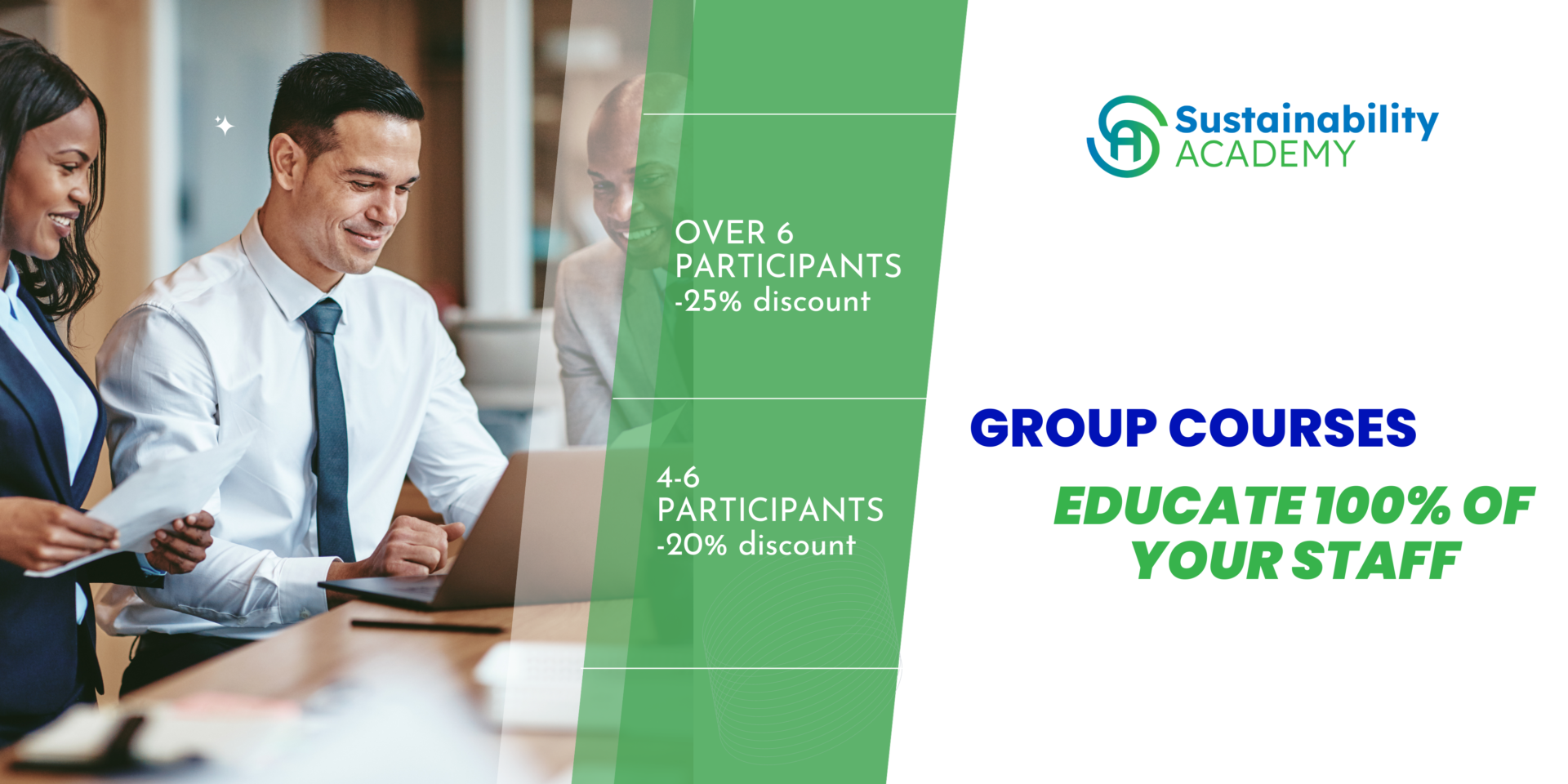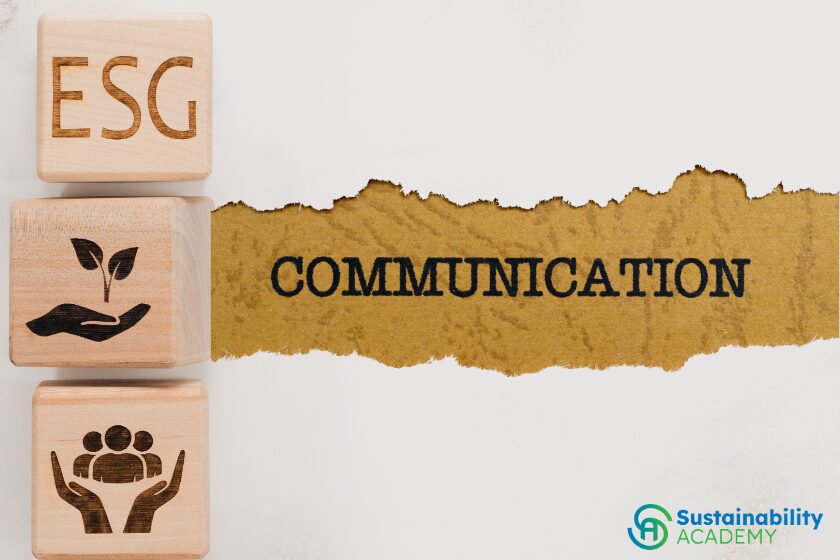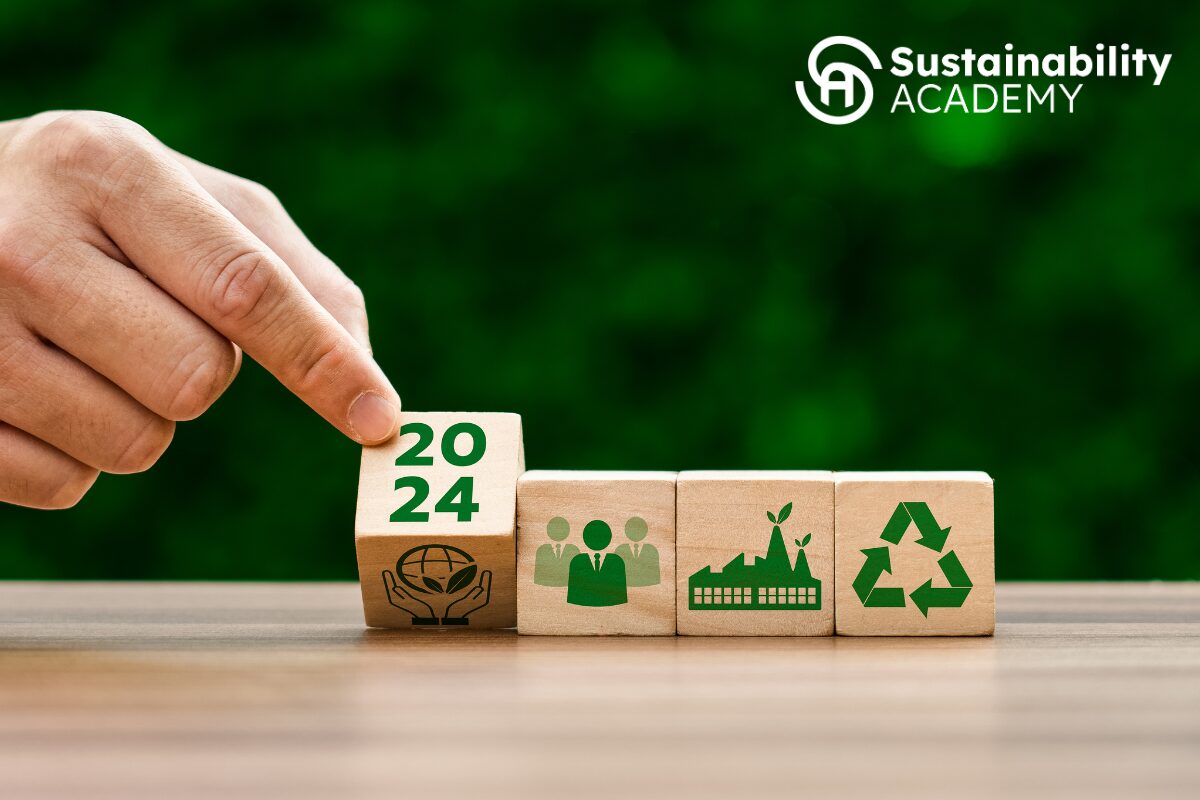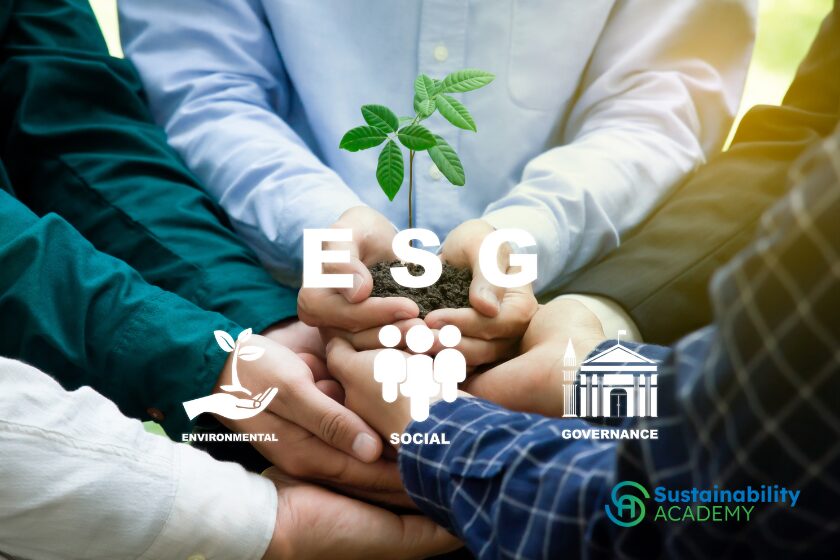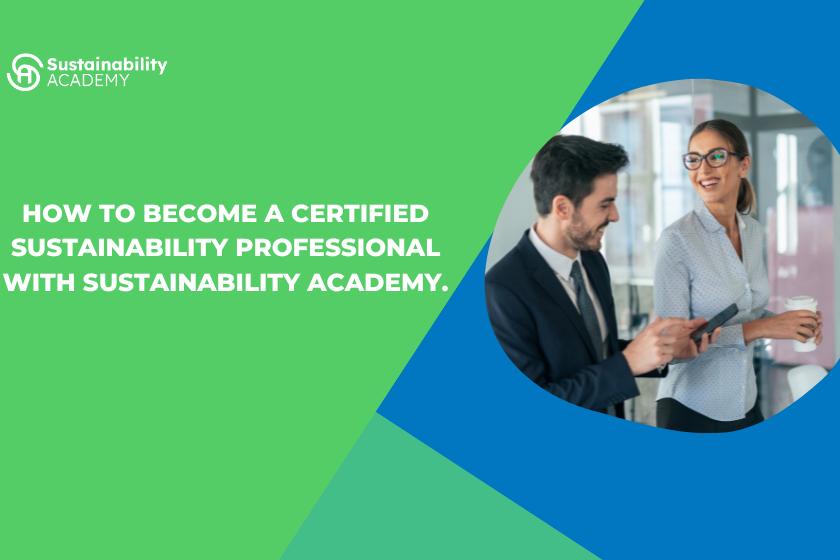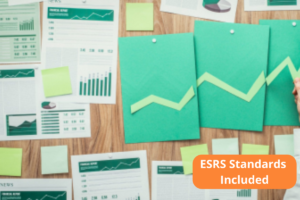As we commemorate Earth Day, it’s crucial for ESG Managers to reflect on the transformative strategies that businesses can adopt to foster a sustainable future.
This article delves into recent trends and research in energy consumption, carbon emissions, and the circular economy, providing actionable insights for professionals committed to environmental stewardship.
Energy Consumption and Carbon Emissions
The energy landscape is rapidly evolving, with significant implications for carbon emissions. According to the International Energy Agency’s 2023 outlook, global energy consumption is set to grow, albeit with a greater share being taken up by renewable resources. Fossil fuel demand is expected to peak by 2030, highlighting the urgent need for strategic investments in renewable energy and energy efficiency improvements.
The Rise of Circular Economy
The circular economy offers a promising path towards sustainability, focusing on recycling, reusing, and reducing waste. As global industries pivot towards more sustainable practices, ESG Managers must consider the benefits of integrating circular economy principles into their operations to minimize environmental impact and drive economic value.
Investment Shifts and Opportunities
Investments in clean technologies are accelerating, particularly in renewables and decarbonization technologies such as electric vehicle infrastructure and carbon capture solutions. Despite challenges, the momentum behind clean energy transitions provides numerous opportunities for companies to enhance their ESG strategies and capitalize on emerging markets.
Challenges and Policy Implications
Navigating the shift to a low-carbon economy involves overcoming several challenges, including regulatory complexities and the need for substantial infrastructure investments. Policymakers and ESG Managers alike must collaborate to create enabling environments that foster innovation and scale up sustainable practices.
As we look towards 2050, the role of ESG Managers in driving the sustainability agenda will only grow in importance. By leveraging the latest insights and trends in energy and environmental management, you can steer your organizations towards more sustainable and profitable futures.
To further enhance your expertise and impact in sustainability, consider enrolling in our Sustainability Academy‘s certified courses. These courses are designed to equip professionals with the skills needed to lead in the transition towards a sustainable, low-carbon economy.
To celebrate Earth Day, we offer a special 20% discount on all certified courses. Don’t forget to use coupon code EARTH20 until April 29th!
Group registrations allow you to attend our certified courses as a team at the same time. Our group courses are created to tackle present-day problems as well as prepare your company for the future.
Discounts can be applied to a group that registers either to the same course or in a combination of courses. Request more information at [email protected].
Why choose Sustainability Academy Certified Courses?
- Offer a unique Certification accredited by CPD in an affordable manner trusted by global Fortune 500 companies and global accounting firms for their staff education
- Content created by Sustainability thought leaders, professors and trainers with practical experience in the field of sustainability
- Self-paced Courses that can be completed anytime within 45 days
- Up-to-date content revised on annual basis that includes new legislations and trends based in field research
- Joined by thousands of learners from 90 countries, including Sustainability professionals, graduates and entrepreneurs from various sectors
Become Recognized as Sustainable Employer: Invest in Workforce
CSE’s recognition offers you the opportunity to elevate your company’s commitment to sustainability and give your workforce the tools they need to make a tangible impact. The recognition provides a Certificate and a badge to companies that are committed to walk the talk on Sustainability and educating their C-Suite Executives, managers and all Staff.
Empower your workforce with the knowledge and skills that matter most.
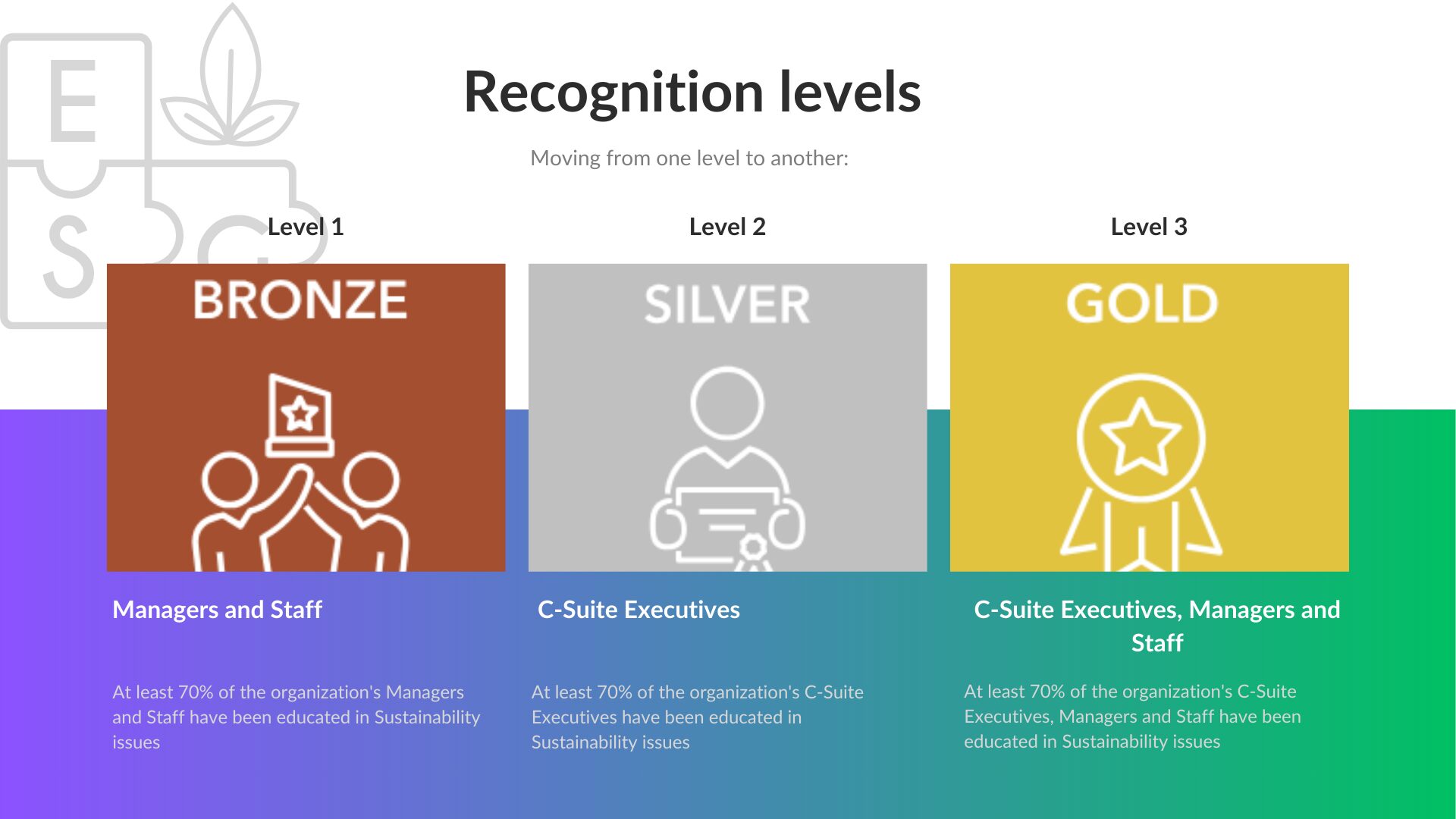
What’s in it for you:
- Recognition: Stand out as an organization dedicated to walking the talk on sustainability. Show your stakeholders, partners, and customers that you’re serious about creating a better, more sustainable future.
- Certification: Your company will receive a valuable certification that recognizes their proficiency in core sustainability issues. This credential demonstrates their commitment to responsible business practices.
- Badge of Honor: Display the prestigious recognition badge proudly on your website and marketing materials. It’s a symbol of your commitment to sustainability and a visual testament to your dedication.


